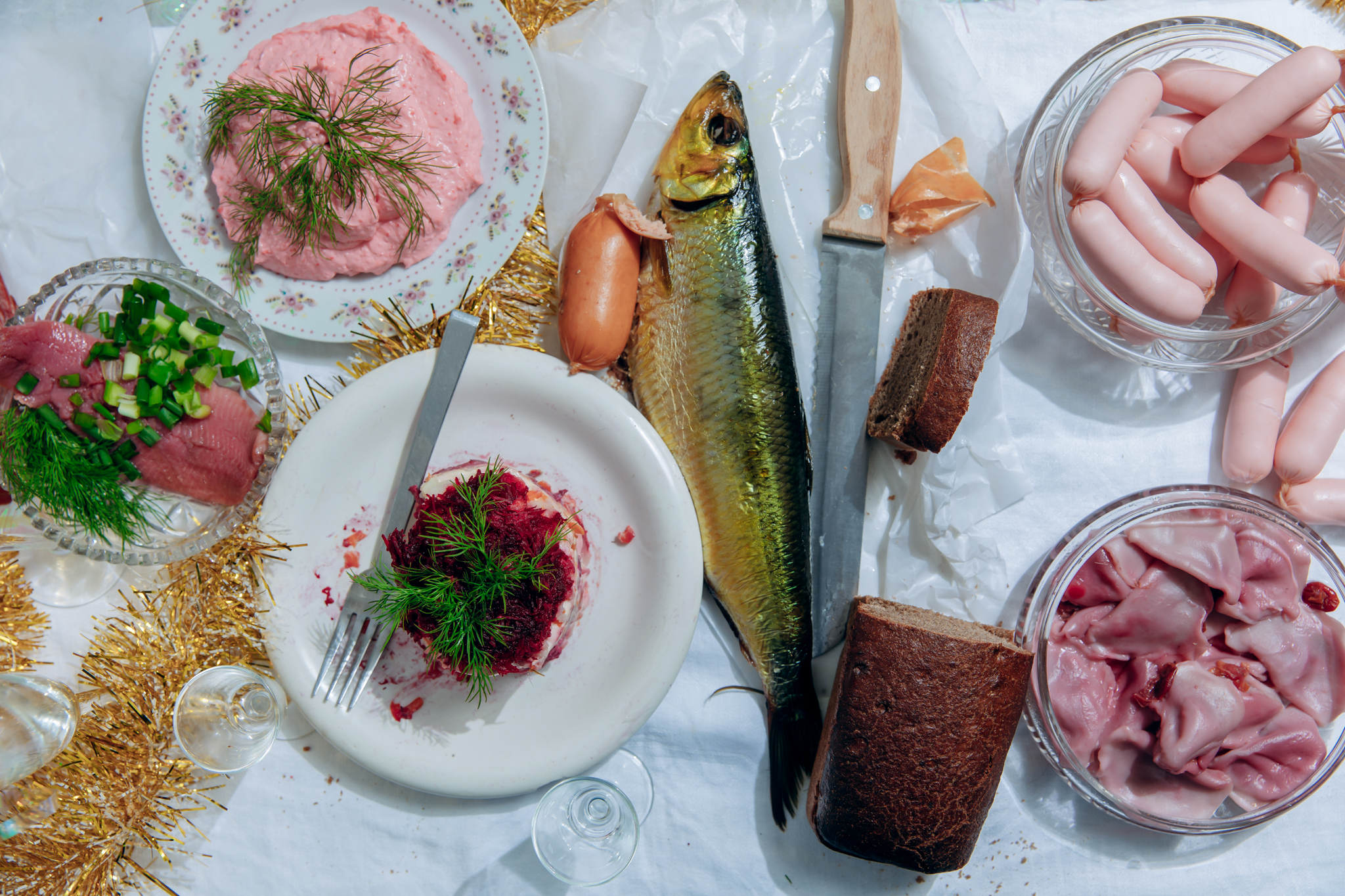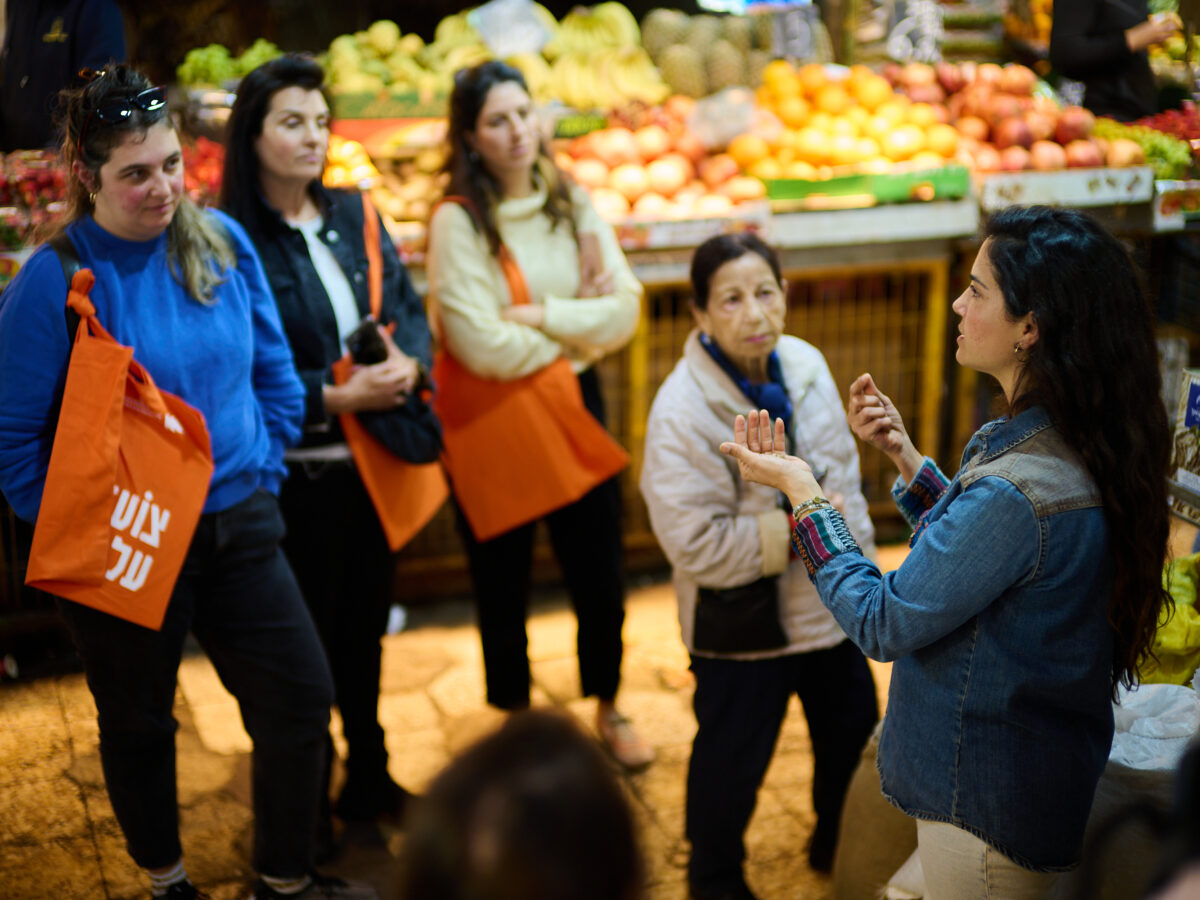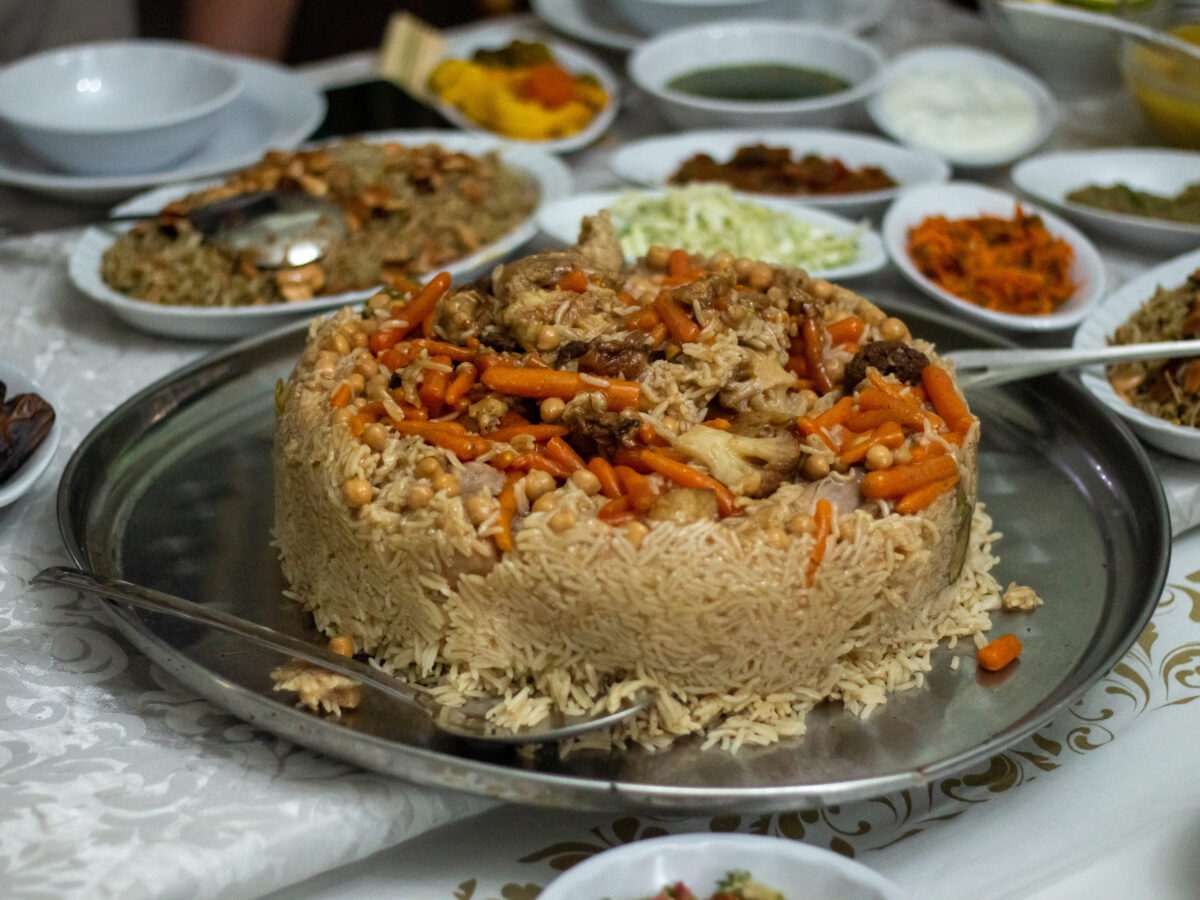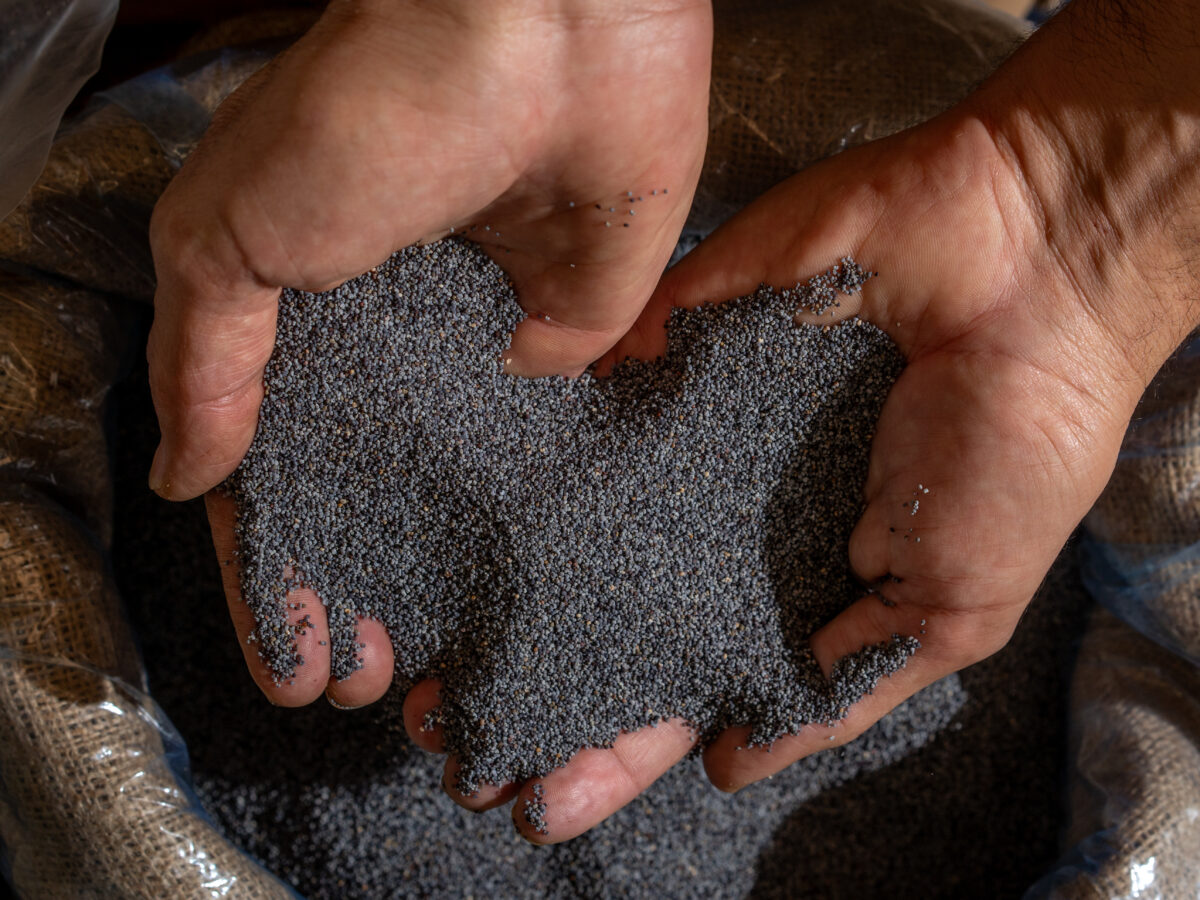When I was 5 years old in 1996, my parents, little brother, and I left the USSR for a little house on Israel’s version of the prairie, Kibbutz Yahel. I love this community and even consider moving back one day, yet my childhood was tinged by ‘quiet’ racism, the kind that gets under your skin. At 23 I moved to the big city to study theater, which provided me with a stage to shout out my pain and helped release some of my demons. At that point I decided to replace anger with activism, and introduce the culture of USSR emigres to non-Russian Israelis.
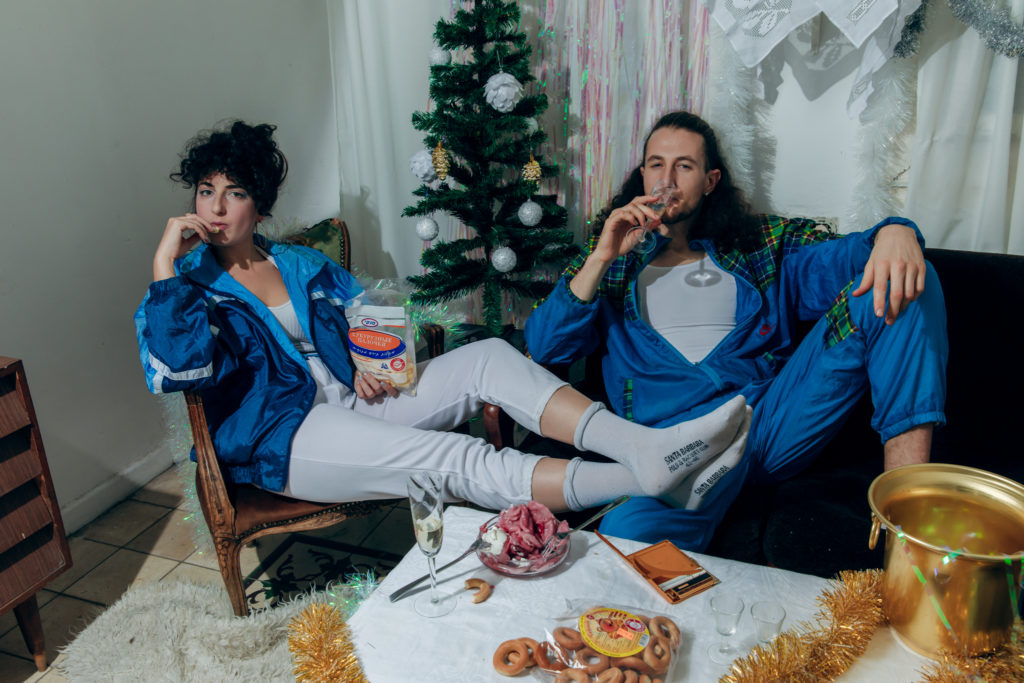
This is the fifth year I’ve invited non-Russian friends to celebrate Novy God (Russian for “New Year”). Every year I assume everybody is familiar with the holiday and its traditions, and every year, at least one person will say: “What is there to celebrate? It’s a Christian holiday.” Well, it isn’t; and it’s also not related to Christmas — which is celebrated on a different date — despite some similarities in the festivities. To this day, I feel some people do not accept us as Jews, and I still feel the fear I’ve harbored since I was 6 of being taunted for having a decorated fir in my house.
Some of the criticism comes from other USSR emigres: “What’s the point of explaining to Israeli society something it will never understand? You’re wasting your time,” they say. But I have no intention of giving up; after a childhood torn between life on the kibbutz and my family with its Soviet nuances, I promised myself that I would never be ashamed of the holidays that are dear to my heart. I want my personal story — a story shared by many other Israelis — integrated into the broader Israeli narrative.
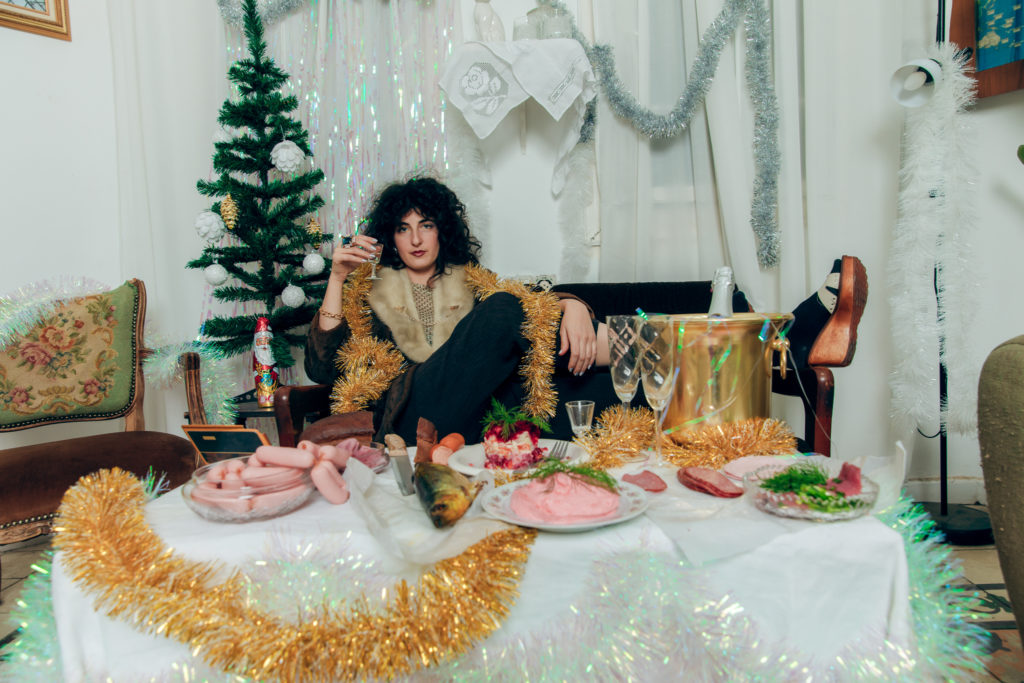
In recent years, Novy God celebrations have become public events in Israel— but the last two years taught us there is no place like home. Inspired by the process my brother Nikita and I went through — the return home on the one hand, and pride and wish to spread tradition on the other — we created a series of photographs expressing the holiday’s intimate spirit, wishing to inspire those isolated during Covid as well.
No Passover for You
All religious holidays were abolished under atheist Soviet rule. For Passover, my grandmother would secretly buy matzo, which family members ate in a hidden part of the house. Communist holidays, on the other hand, were commemorated with public parades and plenty of red, the color of the Communist party. The celebration of Novy God, held on December 31, was the only exception. Families celebrated at home with a decorated tree, gift-giving, a festive meal and even dressing up as figures from Slavic mythology, such as rabbits, the Frost Princess, dwarves, a snowball etc. These meaningful family memories are what made Novy God so important for Soviet emigres.
An Evergreen Tree
We call our decorated tree yolka, literally, an evergreen tree, and its name sheds a light on the origin of this custom: in times of cold and darkness, we bring the one thing that remains green and alive into our homes. We bring light and life home; we decorate and celebrate life itself. According to legend, the custom began with a single branch, but as is typical in our culture, everything that starts out small eventually gets blown out of proportion. Russians now place an entire tree in their living rooms, trimming and shaping it in the typical conical form. The trimmed branches are not discarded, but made into a wreath.
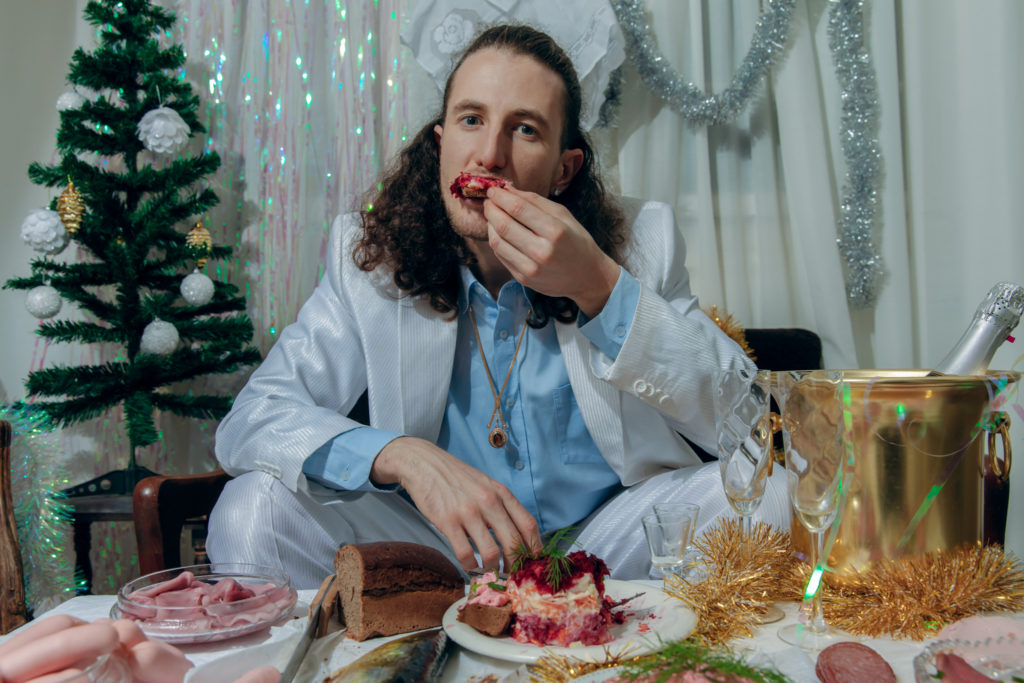
A Visit From Grandpa Frost
Despite the apparent visual similarity between Ded Moroz, or Grandfather Frost, and Santa Claus, the two are not related. The mythological figure of Grandfather Frost appears in numerous Soviet folktales and fairy tales. So how come he wears the same red and white clothes? Once again, the Communists are to blame: they replaced his traditional light blue-and-white costume with a red one — and the color stuck, even after the fall of the Soviet Union. Today we are witnessing a slow and gradual return to origins, and more and more Ded Moroz figures, both at homes and in stores, are wearing blue. According to the legend, Grandfather Frost goes from house to house, placing gifts under the yolka tree. He is accompanied by his granddaughter Snegurochka, the Snow Maiden, who likes to jump over the fire with the children — but unfortunately, she melts.
Traditional Food
The olivier salad is one the simplest, yet most loved dishes of Novy God — so much so, that my family calls it the “I Love You Salad.” It is a potato-based dish, usually containing crab meat or pork. Soviet Jews replaced the non-kosher meat with chicken sausage or shredded chicken. Ironically, in Israel we are constantly asked if the sausage in the salad is Kosher.
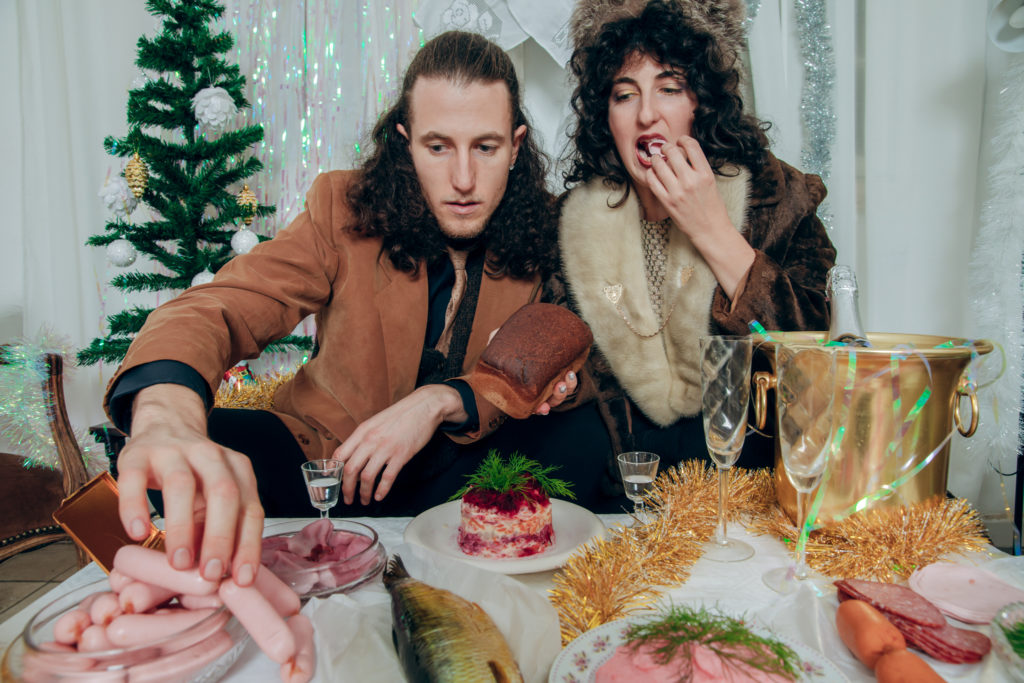
Kholodets, or aspic, may be the holiday’s most controversial dish: imagine a quivering jelly which tastes like chicken soup. I tasted it once and I had enough. Still, every year on Novy God I buy a big chunk at the closest Russian supermarket, for an authentic Soviet atmosphere — and to see who is brave enough to try it.
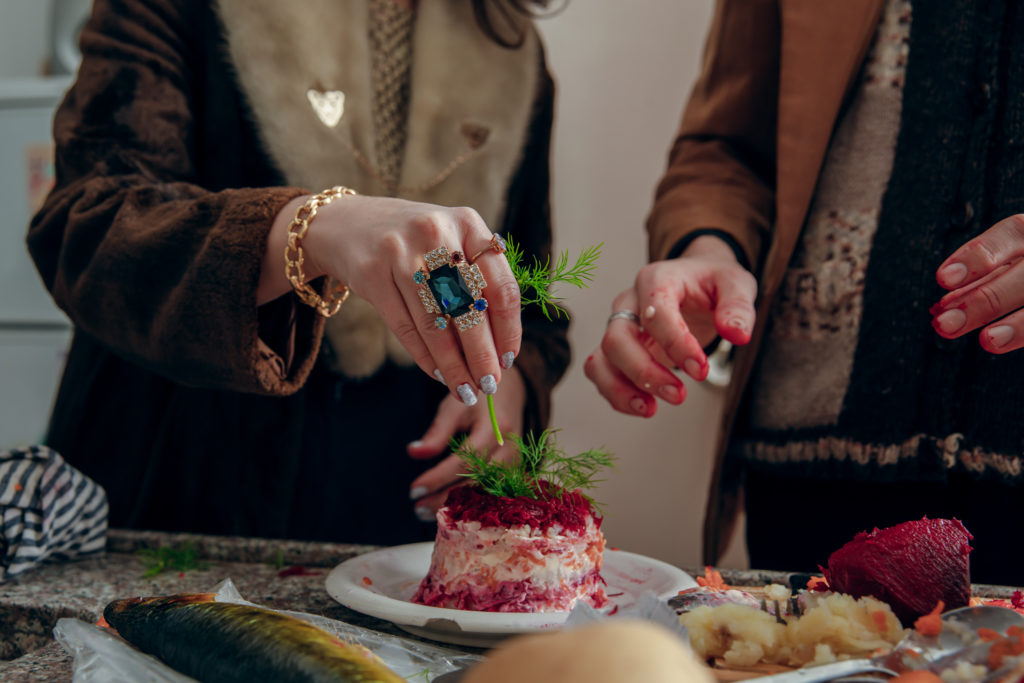
Beetroots and herring? No wonder kids find selyodka pod shuboy (or shuba) unappealing. Literally “herring under a fur coat,” it is a layered salad of beetroots, potatoes, carrots, onions, and pickled herring, laced with mayonnaise and sour cream. I tasted it for the first time at 28, when I prepared it for a Novy God shooting session — and I regretted not having done so before.
s novym godom!
